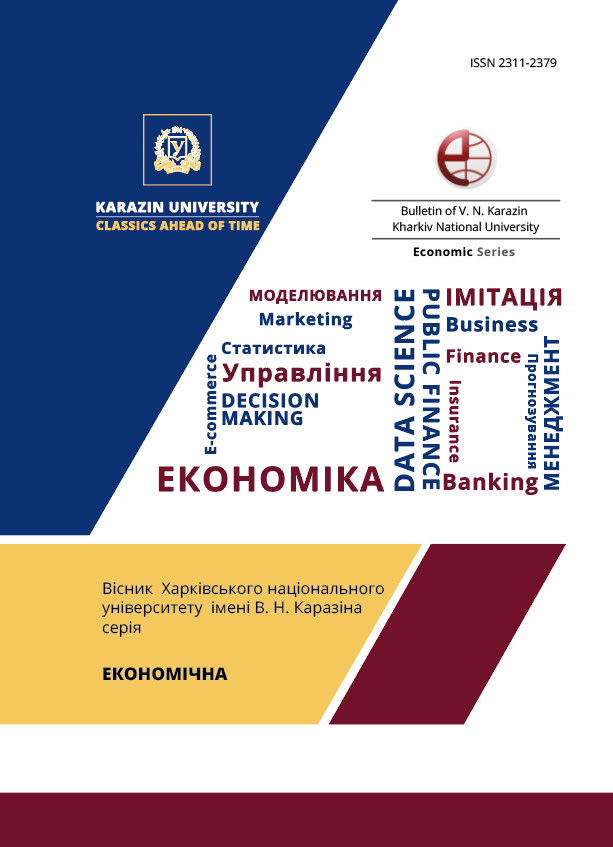The role of educational institutions in the development of startup ecosystems (on the example of Lviv)
Abstract
Educational institutions are active participants in the startup ecosystem, they create conditions for the development of startup ideas based on higher education institutions and in cooperation with international partners and businesses. The article analyzes the activities of the universities of the city of Lviv, namely Lviv Polytechnic National University, Ukrainian Catholic University, and Ivan Franko Lviv National University in the direction of startups. Universities have high rankings in the international rankings QS World University Rankings, Top 50 Universities in Europe for Startups, Top Universities for Startups in Europe by Educations.com, and U-Multirank World University Rankings, which indicates a strong direction of support and expansion of opportunities for entrepreneurial education. The Lviv Polytechnic National University and the Ukrainian Catholic University created the most groundwork for the creation of a startup environment in the Lviv region. The UCU Entrepreneurship Center, accelerator programs, and Tech StartUp School at the Lviv Polytechnic operate at higher education institutions, which actively promote the implementation of startup ideas among student youth. At the Lviv National University named after I. Franko, innovative bachelor's programs are implemented in partnership with the Lviv IT cluster, and annual start-up events are held, in the framework of which technology transfer takes place, foreign investors are invited and presentations of student start-ups are held. A survey conducted among students who chose the discipline of free choice "Start-up management" showed that a significant majority of students agreed that such a course is important for the development of their professional competence, practical, and relevant to the modern realities of the economy. The course structure, which included lectures, guest lectures, and practical sessions, was recognized by students as useful for developing knowledge and skills in the field of entrepreneurship and startups. In addition, the student's expectations from the course were mostly fulfilled, and the course motivated a significant part of the students to continue working on the startups they created. However, during remote group work, some difficulties arose, which affected the effectiveness of teamwork. The development of a start-up environment based on institutions of higher education allows students to develop entrepreneurial skills that they can apply in the real world. By creating a startup, students can learn to identify and solve real-world problems, work collaboratively in teams, and develop a range of entrepreneurial skills such as creativity, innovation, and risk-taking.
Downloads
References
Podolchak, N. Yu., Karkovska, V. Ya., & Levitska, Ya. V. (2021). Ecosystems of startup development as a principle of implementation of state innovation policy. Investments: Practice and Experience, 8, 82-87. doi: https://doi.org/10.32702/2306-6814.2021.8.82.
Tymoshenko, M. V. (2022). Innovative startups as a factor of economic development: the best world practices and experience of Ukraine. New Notes of Lviv University of Business and Law, 23, 13-20. doi: http://dx.doi.org/10.5281/zenodo.6642172.
Novak O., Musiichuk S., Zuenko S. (2020 )Management culture: the role of university startups. Naukovyi Visnyk Natsionalnoho Hirnychoho Universytetu, 5, 193-198. doi: https://doi.org/10.33271/nvngu/2020-5/193.
Fritsch M., Aamoucke R. (2015) Fields of knowledge in higher education institutions, and innovative start-ups: An empirical investigation. Regional, 96, 1-27. DOI: https://doi.org/10.1111/pirs.12175.
QS World University Rankings by Subject 2021: Engineering and Technology. (2021). Retrieved from https://www.topuniversities.com/university-rankings/university-subject-rankings/2021/engineering-technology.
Times Higher Education World University Rankings 2021: Engineering and IT. (2021). Retrieved from https://www.timeshighereducation.com/world-university-rankings/2021/subject-ranking/engineering-and-IT#!/page/0/length/25/sort_by/rank/sort_order/asc/cols/stats.
U-Multirank 2020-2021: Lviv Polytechnic National University Rankings. (2021). Retrieved from https://www.umultirank.org/study-at/lviv-polytechnic-national-university-rankings/.
THE Impact Rankings 2021: Innovation Impact. (2021). Retrieved from https://www.timeshighereducation.com/rankings/impact/2021/innovation-impact#!/page/0/length/25/sort_by/rank/sort_order/asc/cols/undefined.
Startup Genome. (2020). Global Startup Ecosystem Report 2020. Retrieved from https://startupgenome.com/report/gser2020.
Accelerator for student startups Ideas Lab (2023). Retrieved from https://ucucfe.com.ua/education/programs/inkubator-dlya-studentskyh-startapiv-ideaslab/.
Ukrainian Catholic University. (2021). Successful startups in Ukraine: the Center for Entrepreneurship of UCU shared the results of its work. Retrieved from https://ucu.edu.ua/news/uspishni-startapy-v-ukrayini-tsentr-pidpryyemnytstva-uku-podilyvsya-rezultatamy-roboty/.
Tech StartUp School (2012-2022). Lviv Polytechnic National University. Retrieved from https://tsus.lpnu.ua/tech-acceleration-program.
Lviv IT Cluster. (n.d.). IT Expert Project. Retrieved from https://itcluster.lviv.ua/projects/it-expert/.
Ivan Franko Lviv National University. (2022). Promising startups presented at Lviv University. Retrieved from https://lnu.edu.ua/u-lvivskomu-universyteti-prezentuvaly-perspektyvni-startapy/.
Student Survey for the Course. (n.d.). Retrieved from https://docs.google.com/forms/d/e/1FAIpQLSfogDqkCFh86Csz2ivemddpIyjF2MXRgZ4KFd4xDCZOfm-tpA/closedform.

